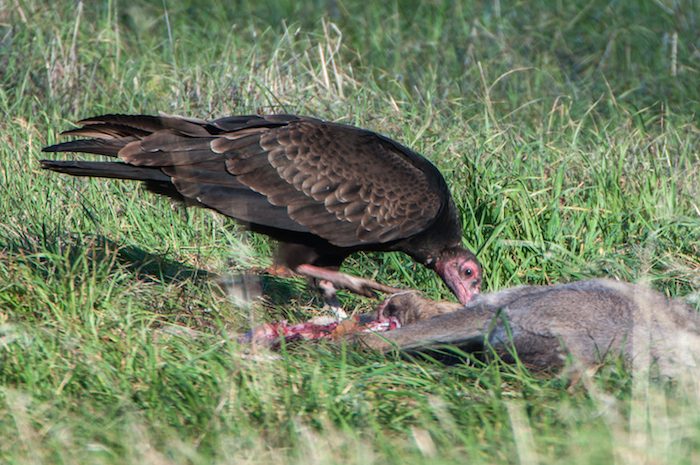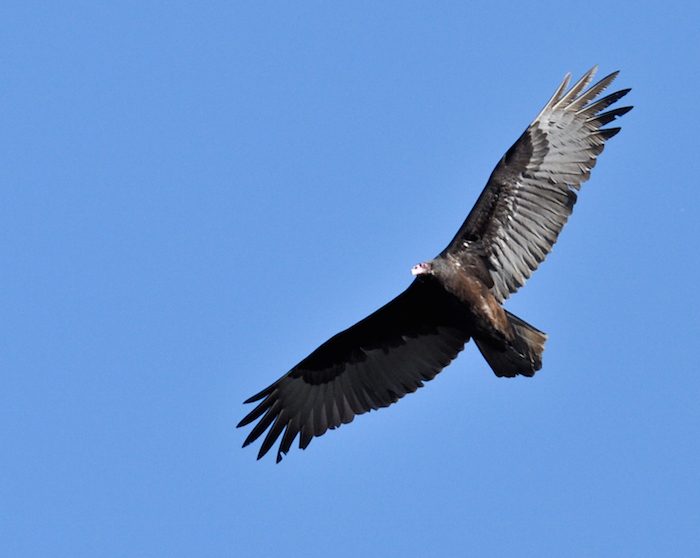
Most of us observe external adaptations—the vulture’s naked head, its sharp beak, its capacity to soar. But the MD’s among us develop a familiarity with internal adaptations. Redding’s own Dr. Lang Dayton has provided further details in response to last month’s article on turkey vultures.
He refers to pH, the chemists’ and pool-owners’ 0-14 scale. In this scale, seven is neutral, like pure water. The extremes, as they are in much of life, are toxic. High numbers are alkaline, also called basic: ammonia measures eleven, and bleach twelve. Low numbers are acidic—think lemon juice, which stings, or sulfuric acid, used in drain cleaners, or Iron Mountain runoff, which has been measured at sub-zero pH levels.
Dr. Dayton writes:
The main reason vultures can eat almost anything is that they have the lowest gastric pH in the animal kingdom. Stomach acid protects all animals because it digests bacteria and other living organisms along with other proteins. Human stomach acid has a pH of two. It kills 99% of bacteria in contact with it, but people still get sick and can die if they eat enough contaminated or rotten food.
Turkey vultures’ stomach acid has a pH slightly above zero, lower than car battery acid and 100 times as concentrated as human gastric juice. It can dissolve metal, e.g. shovels, as well as digest nearly all organisms, including those that cause botulism, anthrax, rabies, cholera, hepatitis, and polio, along with other proteins. Vultures can eat just about anything that is dead and rotten, including animals that died from infections that, in turn, would kill most people who ate them.
By consuming rotten and diseased meat they decontaminate it, which helps to prevent the spread of disease to both humans and other animals.
When India experienced a massive vulture die-off in the 1980s, feral dog populations exploded and, with them, the incidence of anthrax, rabies, and other communicable diseases. Unlike vultures, dogs do not so thoroughly disinfect what they eat. Feral pets that eat carrion can acquire and spread disease from their meals.
One of the things that I used to teach Interns and Residents in the Mercy Medical Center Family Practice Program was that stomach acid protects all animals as it digests swallowed organisms along with other proteins, and that it is a bad idea to take medicines that suppress gastric acid when going to 3rd world countries. People lacking stomach acid get sick on 1/100th the dose of ingested organisms as normal people. Vultures, on the other hand, could feed on botulinum toxin. Give them enough gastric acid suppressants, however, and they would likely die after their next putrid meal.

So thanks again to vultures for their good work, which seems to take both soaring on wings and going low on pH, and to Dr. Dayton for teaching us about the vultures’ gastro-intestinal virtue.
